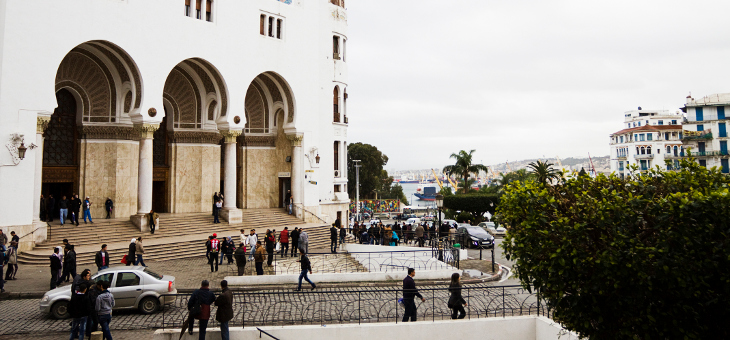Algeria: Protests are challenging the status quo

Event
Algeria is currently marked by unprecedented protests that are challenging President Bouteflika’s rule of the country. Sparked by the announcement that he would stand a fifth time for re-election, these are the largest protests in Algeria since the 2011 Arab Spring protests. Bouteflika, who was in Switzerland when the protests erupted, returned to Algeria and later announced that he would not stand for re-election. Additionally, he announced that the elections will be postponed in order to allow for constitutional changes to be implemented, and Prime Minister Ahmed Ouyahia resigned. Since the protesters demand quick change, it is uncertain that the protests will reduce soon. For the government, they come at a difficult time as the Algerian economy is severely weakened compared to a few years ago due to large fiscal deficits and the lack of structural reforms.
Impact
While it was not unexpected that the announcement of the severely ill Bouteflika running for a new mandate would spark controversy in the country, the size of the protests has been a large challenge to the government and difficult to ignore as it sparks memories of the 2011 Arab Spring protests. However, while the announcement triggered the protests, the protests reflect some of the deeper-lying issues that remained unchanged since the Arab Spring protests of 2011. They are mainly expressing frustration with the ruling elite, the lack of economic progress, the high unemployment rate (especially among the youth) and other factors. Three elements have been driving this. First of all, Algeria’s economy has remained overly reliant on oil rents. Exports of oil and gas continued to represent around 80% of the total current account receipts in recent years. Secondly, the government resisted implementing any significant economic reforms since oil prices collapsed mid-2014. And thirdly, the strong business elite with a strong link to the government has been able to dominate a number of sectors in such a way that it inhibited competition. These three elements are, however, related. The government resisted reforms as they fear that reforms would spark protests, and because of pressure from the business elite that is happy with the status quo. This in turn has led to a situation in which little alternative industries are developed that generate foreign exchange receipts for the economy, which means that oil and gas remains the dominant sector. Since mid-2014, lower oil prices have significantly deteriorated Algeria’s economic outlook as the country struggled with a large twin deficit. In 2018, the government deficit was still estimated to be around 6.1% of GDP (compared to 13% in 2016) while the current account deficit remained large, around 9% of GDP. A consequence of this has been a strong drop in foreign exchange reserves since 2014. Between September 2017 and September 2018 (the most recent month for which data is available), reserves dropped by 15%. Nevertheless, they remain large as they still cover around 14.9 months of imports. This is one of the reasons why Credendo maintains category 3/7 for the short-term political risk. At the same time, both the deteriorating economic situation and the protests are putting pressure on the current classification. Still, it is not expected for the protests to lead to strong political instability. Instead, the government will try to use the process of constitutional reform to buy time in order to find a candidate that is deemed acceptable to the circle of the incumbent president, the military and the population.
Analyst: Jan-Pieter Laleman – jp.laleman@credendo.com